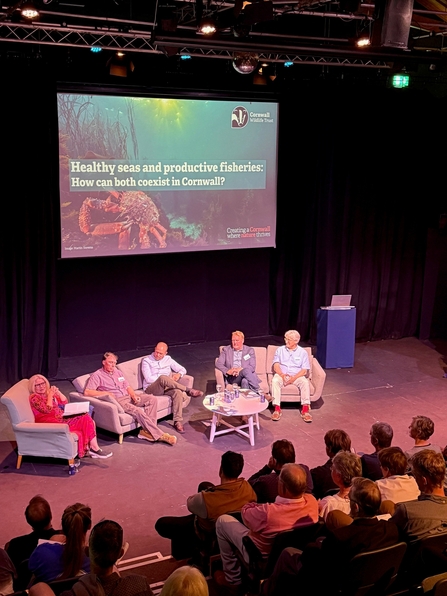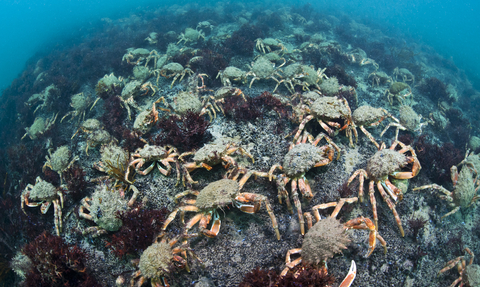Our government claims to be “mission-driven” through five key objectives to rebuild Britain. Despite the notable absence of nature from this mission list, a huge constituency of individuals, communities, and organisations across the country are very much on a mission to protect 30% of land and sea by 2030.
The success of the salty bit of this mission depends heavily on how we manage fisheries, as overfishing has a greater impact on marine biodiversity than pollution, or even climate change.
Because fishing is the issue in our seas, conservation and fisheries interests are typically—often mistakenly—seen as conflicting. And now it feels like we’re rapidly approaching a tipping point. A real moment of change. This year we’ve seen a high profile battle between fisheries interests and conservation, with the UK defending a sandeel fishing ban in the North Sea. And the release of Ocean, Sir David Attenborough’s last, and hardest-hitting documentary, has exposed many to the devastating impacts of bottom trawling for the first time.
In Cornwall, figuring out how to deliver for nature and fisheries really matters, because the sea underpins so much of what we value: Our culture, our history, our economy, and our wellbeing. We have more coastline than any other English county, busy fishing ports landing tonnes of catch daily, internationally important marine habitats, and a critical mass of marine conservationists, enthusiasts, and water users. There has never been a more important time to ask the question: “Can we have healthy seas and productive fisheries?” and I believe Cornwall is one of the most important places to be asking it.



